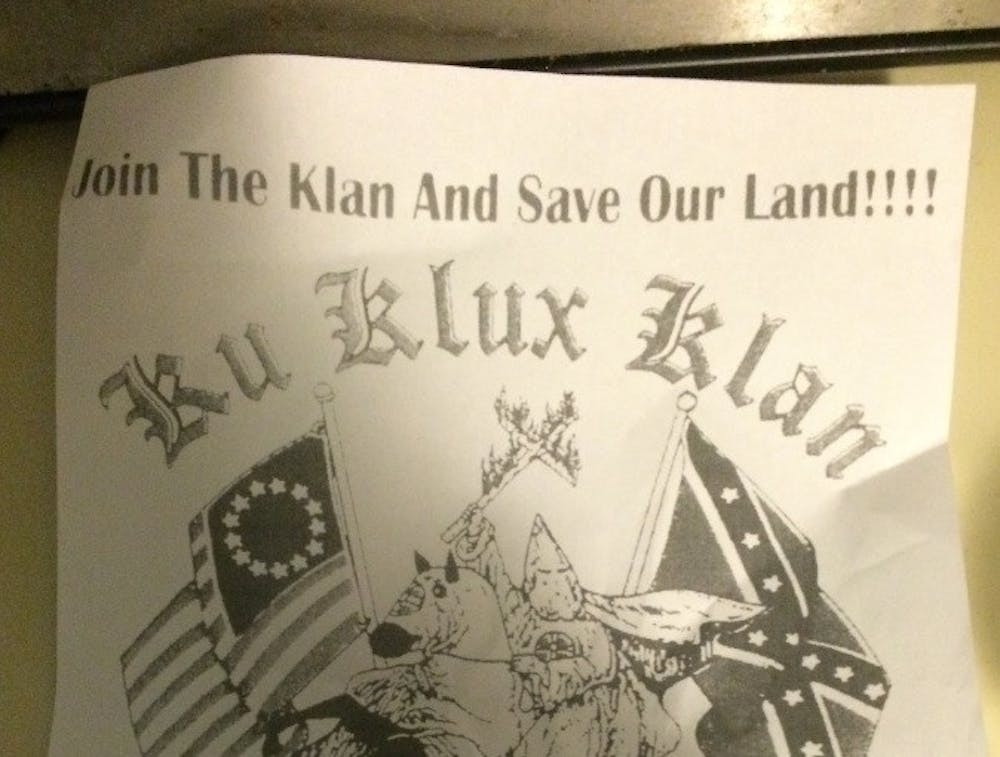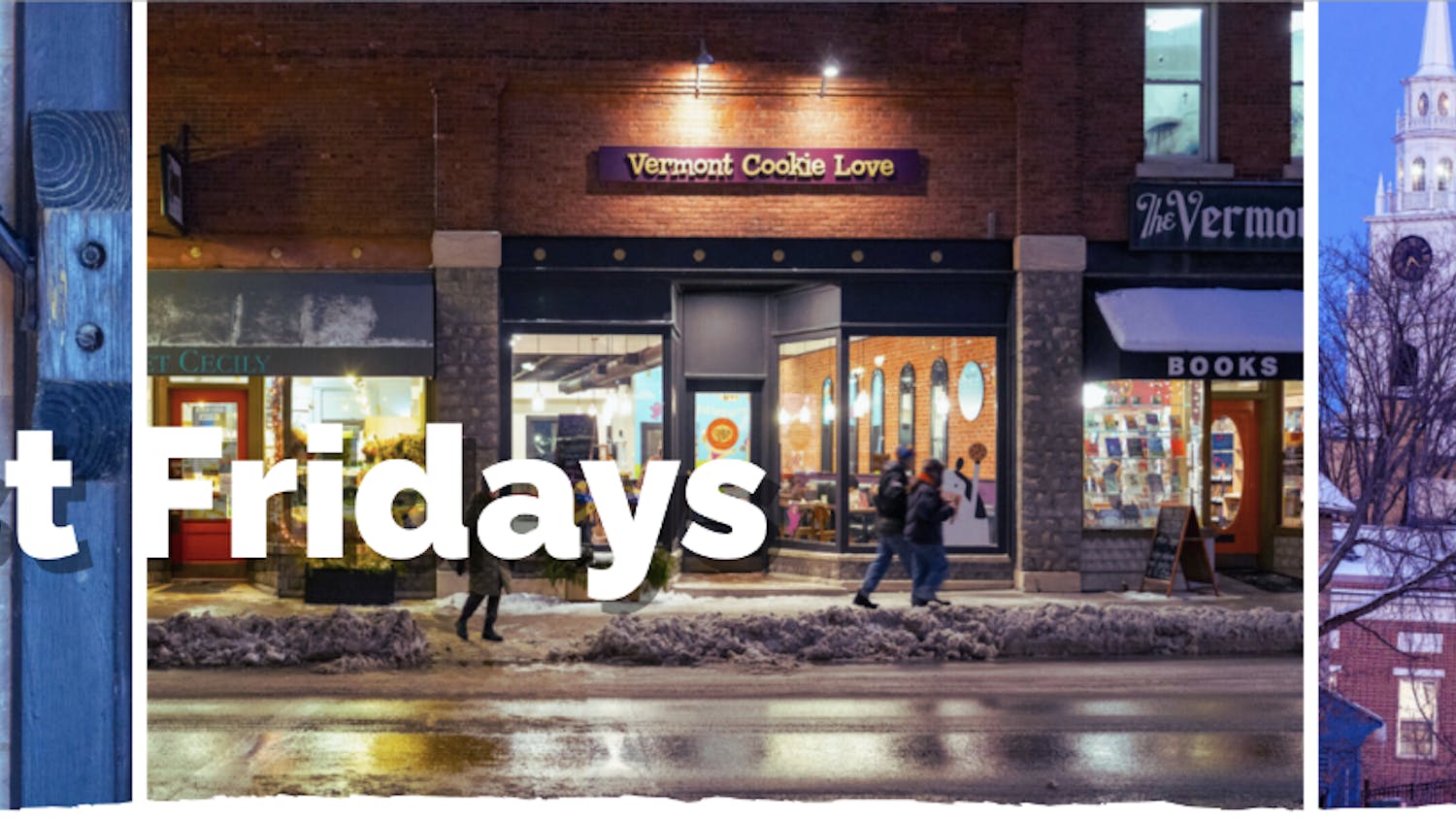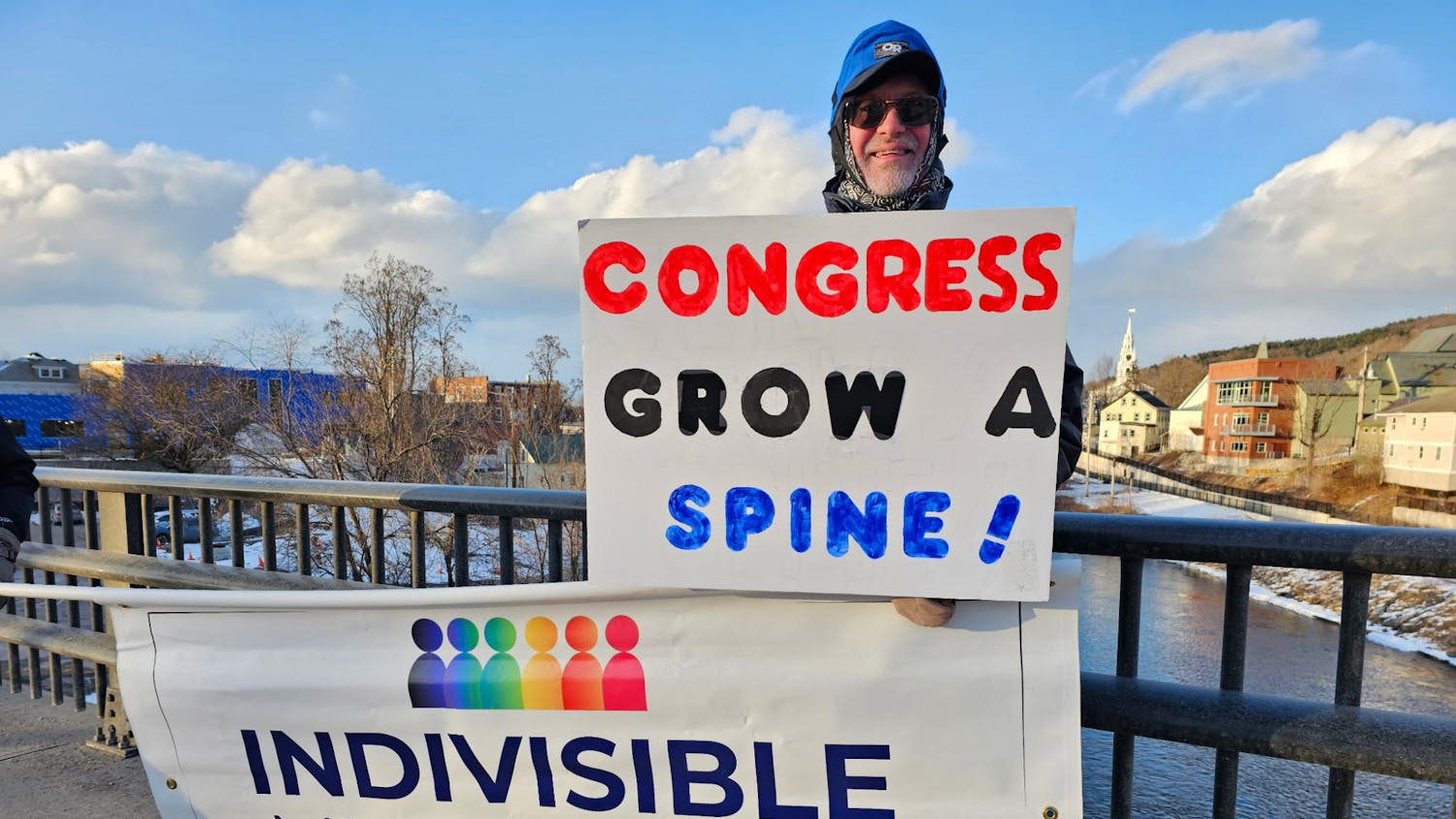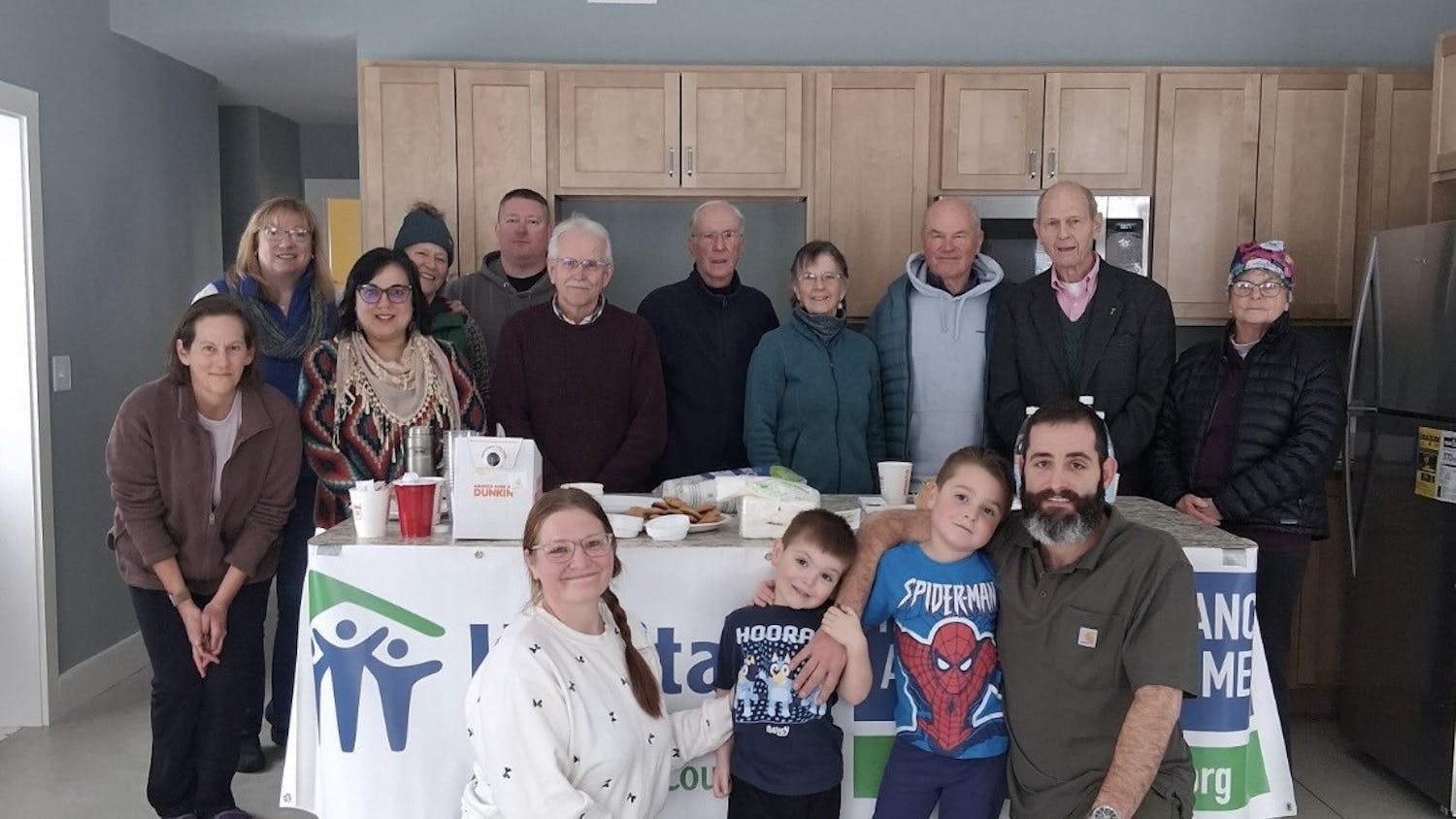As a Burlington high school student ascended her front on Oct. 29, she noticed a inconspicuous white poster taped to her front door. That evening, the African-American student had been at a meeting for a non-profit advocacy group called Rights and Democracy, which works towards building a more robust democracy in Vermont. “Join the Klan and Save Our Land!” the flier read.
The sign also included a drawing of a Ku Klux Klan horseman, classically outfitted in a white sheet against a backdrop of both the confederate flag and the colonial American flag. The student looked at her neighbors’ homes. No white supremacist posters decorated their doors.
Terrified, the student called her father, who contacted local police. They politely informed him that such a poster was merely an example of “hate speech,” for which police response was not possible. It wasn’t until James Haslam, the Executive Director of Rights and Democracy, personally reached out to the state Attorney General that the Burlington police began to “take the incident seriously” and opened a criminal investigation.
For their part, Rights and Democracy organized a community meeting, rallying together criminal justice advocates as well as other area non-profits such as Vermonters for Criminal Justice Reform, Justice for All, Peace and Justice Center and Vermont Interface Action. It was at this point that a second African-American woman came forward, announcing that she had also received a similar poster on her door. She would go on to speak at the meeting, which included a press release and was attended by over 100 people.
According to Haslam, there has been a “strong response” from the Burlington community to the incident. He cites a “broad range of groups,” including the United Electrical Workers Union, that have embraced the victims and are working to ensure this type of incident “won’t happen again.” A petition entitled “An Open Letter Against Hate,” popped up online in the days after the incident, and has since received almost 800 signatures. A rally on Thursday, Nov. 5 attracted over 400 attendees.
“We can tolerate a lot of things but hate is not one of them,” Haslam says. “The [Burlington] community is sending a loud message that such things are not welcome here.”
Similar episodes have occurred in the past several months. Recently, an area resident assaulted his black neighbor while yelling racial slurs. Police did not fully investigate.
According to Rights and Democracy, black citizens in Vermont are ten times more likely to be incarcerated than their white counterparts. They are six times more likely to get pulled over. Considering Vermont’s reputation for being very progressive, Haslam says the state has yet to “walk the walk.”
In light of Vermont’s troubled racial history, the slow response to the KKK flier is particularly alarming. If it weren’t for the advocacy of Rights and Democracy, Burlington police would not have been compelled to open an investigation.
Jas Wheeler, a black and Mexican resident of Burlington who moved here from Cleveland, Ohio, echoes this sentiment. In her opinion, the supportive reaction of Burlington residents is not indicative of Vermont’s overall attitude when it comes to race.
“The violent and aggressive racism that I have faced here is the worst I have ever encountered,” she says. In a state that is “95 percent white,” black and brown people are carrying the weight of the “progressive, neoliberal image” that Vermont touts.
Haslam acknowledges that similar instances have blown over in the past. Meetings are held and plans of action are recommended, only for everything to be forgotten after a few weeks or months.
Yet he and others seem remarkably committed. Beyond simply responding to individual expressions of hate, Haslam is advocating for a new agenda for Vermont, one that addresses the biases inherent in law enforcement and local government when it comes to issues of race. His plan includes innovations in training and reform of police procedures, as well as alternatives to the police force in the event that their response to a racial incident is inadequate.
“Undoing racism is going to take a lot,” he admits, pointing out that “far too many people” experience “severe amounts of racism” on a day-to-day basis. “This was not an isolated incident, and we need our institutions to be accountable to our community,” Haslam said.
On Nov. 19, Haslam and other advocates will be visiting Middlebury in order to bring this discussion to new areas of Vermont. Furthermore, on Dec. 5 there will be a Rights and Democracy summit in Burlington, where candidates for governor and progressive legislators will participate in a conference to address the issue of institutionalized racism in the state.
Burlington Residents Condemn KKK Flier

Comments



